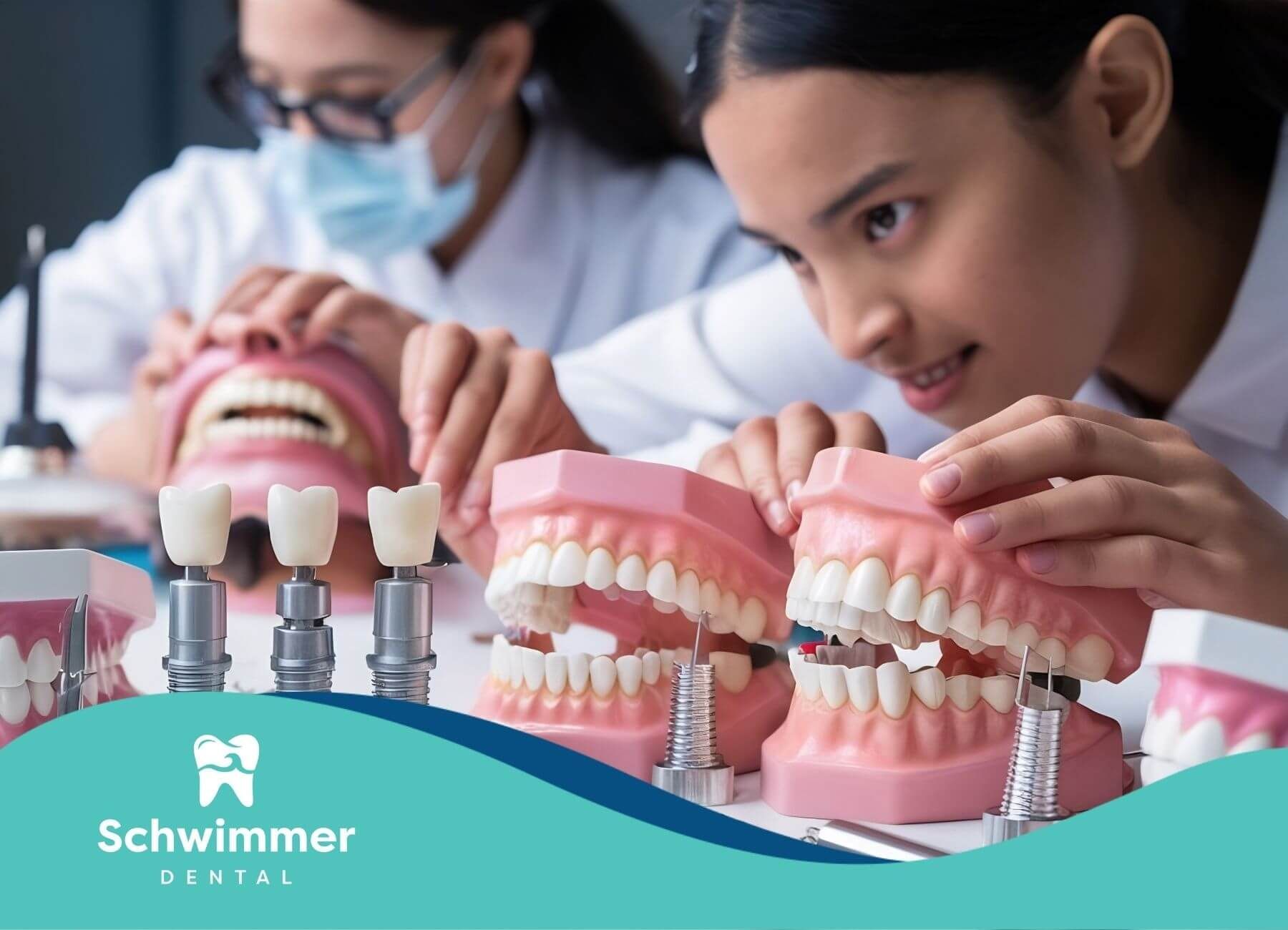7 Home Remedies on How to Fix a Cracked Tooth Naturally
Key Highlights
- Discover several home remedies that offer temporary pain relief for a cracked tooth.
- Natural methods like saltwater rinses and clove oil can help manage symptoms and discomfort.
- Understand that these remedies do not permanently fix a cracked tooth or prevent further damage.
- A cracked tooth cannot heal on its own and requires professional dental care for a lasting solution.
- Learn when it's crucial to see a dentist to avoid infection and other serious complications.
- These tips focus on managing pain until you can receive proper treatment.
Introduction
A cracked tooth can be a jarring and painful experience, disrupting your daily life with sharp pain and sensitivity. Whether from biting down on something hard or an unexpected injury, the immediate concern is often how to manage the discomfort. While home remedies cannot permanently fix the issue, they can provide safe and effective temporary relief.
This guide will explore natural ways to soothe tooth pain and protect your oral health until you can seek professional dental care, ensuring your dental health isn't compromised.
5 Home Remedies to Fix a Cracked Tooth Naturally at Home
When you're dealing with a cracked tooth, finding immediate relief is a top priority. Fortunately, several effective home remedies can help manage pain and reduce the risk of infection. These natural remedies use common household ingredients to provide comfort while you await a dental appointment.
It's important to remember that these methods are for symptom management and will not repair the tooth. Using these natural solutions can help prevent further damage and keep you comfortable. Here are five simple remedies you can try at home.
1. Saltwater Rinse for Soothing and Cleaning a Cracked Tooth
A saltwater rinse serves as a simple yet effective way to soothe discomfort from a cracked tooth while promoting oral health. Mixing a teaspoon of salt in a cup of warm water creates a natural disinfectant, targeting harmful bacteria that can accumulate around the affected area. Rinsing with this solution helps reduce inflammation and may alleviate pain associated with tooth cracks.
For optimal results, swish the mixture in your mouth for about 30 seconds before spitting it out, ensuring it reaches the cracks. This natural remedy can be repeated several times a day, especially after consuming sticky or hard foods, minimizing the risk of further complications and fostering good oral hygiene.
Prompt treatment with a saltwater rinse can significantly improve comfort levels. However, it is important to note that while natural methods like saltwater rinses may help relieve discomfort and promote cleanliness, a cracked tooth cannot heal on its own. Professional dental care is necessary to properly repair a cracked tooth and prevent further damage.
2. Clove Oil Application for Natural Pain Relief
Clove oil stands out as a simple yet effective way to alleviate discomfort associated with a cracked tooth. Rich in eugenol, this natural remedy possesses powerful analgesic and antiseptic properties that can significantly reduce pain and inflammation. Applying a small amount of clove oil directly to the affected area using a cotton swab can provide temporary relief from persistent pain.
Additionally, clove oil helps combat harmful bacteria, reducing the risk of infection. For a soothing experience, consider mixing a few drops of clove oil with a carrier oil, such as coconut oil, and gently massaging it outside of your cheek where the pain radiates. Incorporating this natural remedy into your oral health routine may serve as an excellent complement to professional dental care.
While clove oil can help relieve pain and reduce bacteria, it is not possible to fix a cracked tooth without going to the dentist. Only professional dental treatment can properly repair structural damage in a cracked tooth, so home remedies are useful for temporary relief but not for actual tooth repair.
3. Cold Compress to Reduce Swelling and Discomfort
Applying a cold compress to the affected area serves as a simple yet effective way to alleviate inflammation and discomfort associated with a cracked tooth. By using an ice pack wrapped in a cloth or a bag of frozen vegetables, the cold temperature helps constrict blood vessels, potentially reducing swelling and numbing the pain.
This method is particularly beneficial in the early stages following the injury, as it can mitigate the risk of further complications. While cold compresses and other natural remedies may provide temporary relief from pain and swelling within a few hours to a couple of days, significant improvement of a cracked tooth itself typically does not occur solely through natural remedies. It’s important to seek professional dental care for lasting recovery.
For optimal results, apply the cold compress for 15 to 20 minutes at a time, taking breaks in between to prevent skin damage. Regular use can provide temporary relief while waiting for a professional dental care appointment. Incorporating this natural remedy into your routine supports overall oral health during recovery.
4. Garlic Paste as a Natural Antibacterial Remedy
Garlic is more than just a kitchen staple; it possesses powerful natural antibacterial properties that can help manage oral pain. Crushing a garlic clove releases allicin, a compound known to fight bacteria and alleviate discomfort. Applying a garlic paste to the cracked tooth can help reduce the risk of infection in the vulnerable area.
Making a paste is simple and allows you to apply this natural remedy directly where it's needed most. This method can help keep the area clean while you wait for professional treatment, supporting your overall dental health.
Although garlic can help with pain and bacteria, it cannot mend the tooth structure. Think of it as a natural line of defense for the affected area.
- Crush one fresh garlic clove to create a paste.
- You can add a pinch of salt to enhance its antibacterial effect.
- Apply the paste directly to the affected tooth.
- Leave it on for a few minutes before rinsing your mouth with warm water.
5. Turmeric Paste for Reducing Inflammation
Turmeric paste stands out as a natural remedy for reducing inflammation associated with a cracked tooth. Known for its powerful antimicrobial properties, turmeric can help combat harmful bacteria, promoting overall dental health. To create this effective home remedy, mix turmeric powder with a small amount of water or coconut oil to form a paste. Apply the paste directly to the affected area using a cotton swab or clean finger.
Let it sit for about 15-20 minutes before rinsing with a cup of warm water. This simple yet effective way not only soothes irritation but also leverages turmeric's antiseptic properties to prevent further complications. Ensure good oral hygiene practices are followed to maximize the benefits of this natural treatment and reduce the risk of tooth decay.
Conclusion
In summary, addressing a cracked tooth naturally can be both effective and accessible with the right home remedies. From saltwater rinses to clove oil applications, these methods not only promote healing but also provide relief from discomfort.
It's essential to remember that while these remedies can offer immediate benefits, they do not replace professional dental care. If you're experiencing persistent pain or complications, consulting a dentist is advisable. Embrace these natural solutions, and prioritize your dental health.
While home remedies can offer temporary relief, lasting solutions come from expert care—and that’s where Schwimmer Dental excels. As one of the leading dental clinics in New Jersey, Schwimmer Dental specializes in restoring cracked or damaged teeth with precision and care.
Our team combines advanced treatment methods with a gentle approach to help patients regain comfort and confidence in their smiles. Don’t wait for small cracks to turn into bigger problems—schedule a visit to Schwimmer Dental and let the experts take care of your smile properly.
Frequently Asked Questions
Can a cracked tooth heal on its own with natural remedies?
No, a cracked tooth cannot heal on its own. Unlike bones, tooth enamel does not regenerate. Natural remedies can only manage symptoms like pain and swelling. Seeking professional dental care is the best course of action to properly treat the crack and prevent further damage or infection.
What foods should I avoid if I have a cracked tooth?
If you have a cracked tooth, you should avoid hard objects like ice, nuts, and hard candies, as they can worsen the crack. Also, stay away from sticky foods that can pull on the compromised tooth structure. Stick to soft foods like yogurt, soups, and mashed potatoes to minimize tooth pain.
Are there risks to fixing a cracked tooth at home?
Yes, there are significant risks. Attempting to fix a cracked tooth at home can lead to a higher risk of infection, increased pain, and further complications. Home remedies only offer temporary pain relief and do not replace professional care like dental bonding, which is needed to properly seal and protect the tooth.



